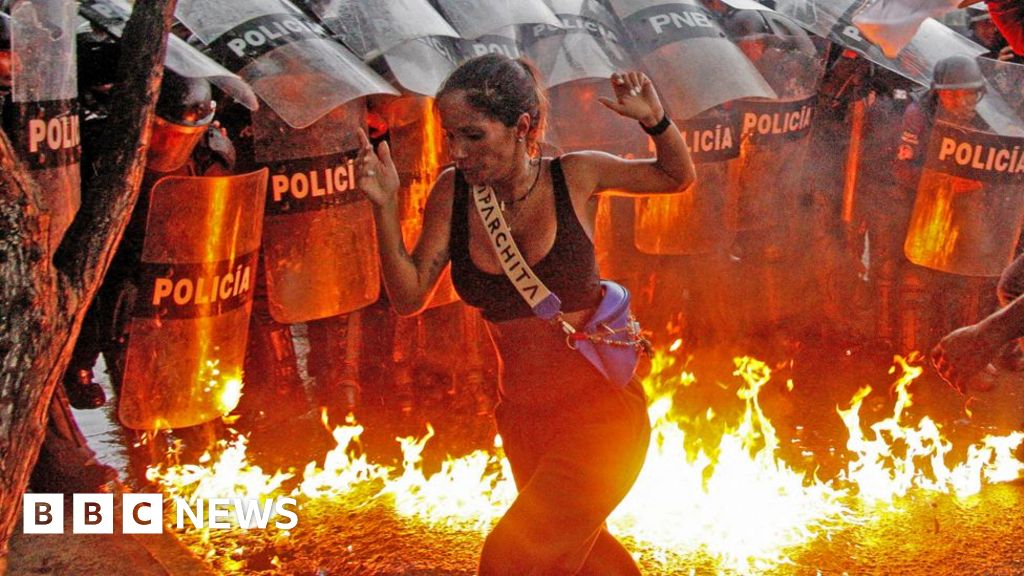Before you read that, see also: Choreographed celebrations in Venezuela as Maduro claims win
There are some things that are indisputable. Some which I, as an observer on the ground, was witness to.
There were the huge queues at polling stations, but only tiny amounts of people being let in at one time.
This led to accusations of deliberate delays, perhaps in the hope some people would give up and go home.
When our BBC team arrived at one polling station, the organiser of the station took a call saying the international media were there. 150 people were then suddenly allowed to be admitted.
There were some poll stations that didn’t open at all, leading to protests and clashes with the authorities.
There were allegations that some of those who work for the state, including police students, were told how to vote.
The protest coverage says:
The opposition has disputed Mr Maduro’s declaration of victory as fraudulent, saying its candidate Edmundo González won convincingly with 73.2% of the vote.
A heavy military and police presence, including water cannons, was on the streets of Caracas with the aim of trying to disperse protesters and prevent them from approaching the presidential palace.
In some areas, posters of President Maduro were ripped down and burned while tyres, cars and rubbish have also been set alight.
Armed police, military and left-wing paramilitaries who are sympathetic to the government clashed with protesters and blocked off many roads around the city centre.
See also similar coverage from Al Jazeera: Protests break out as Maduro declared winner of disputed Venezuela election (archive)



The US sanctioning Venezuela in order to destabilize has a negative impact on material conditions can have that effect of people leaving. The blame lies more on the US that does the bidding for Chevron than Venezuelas government.